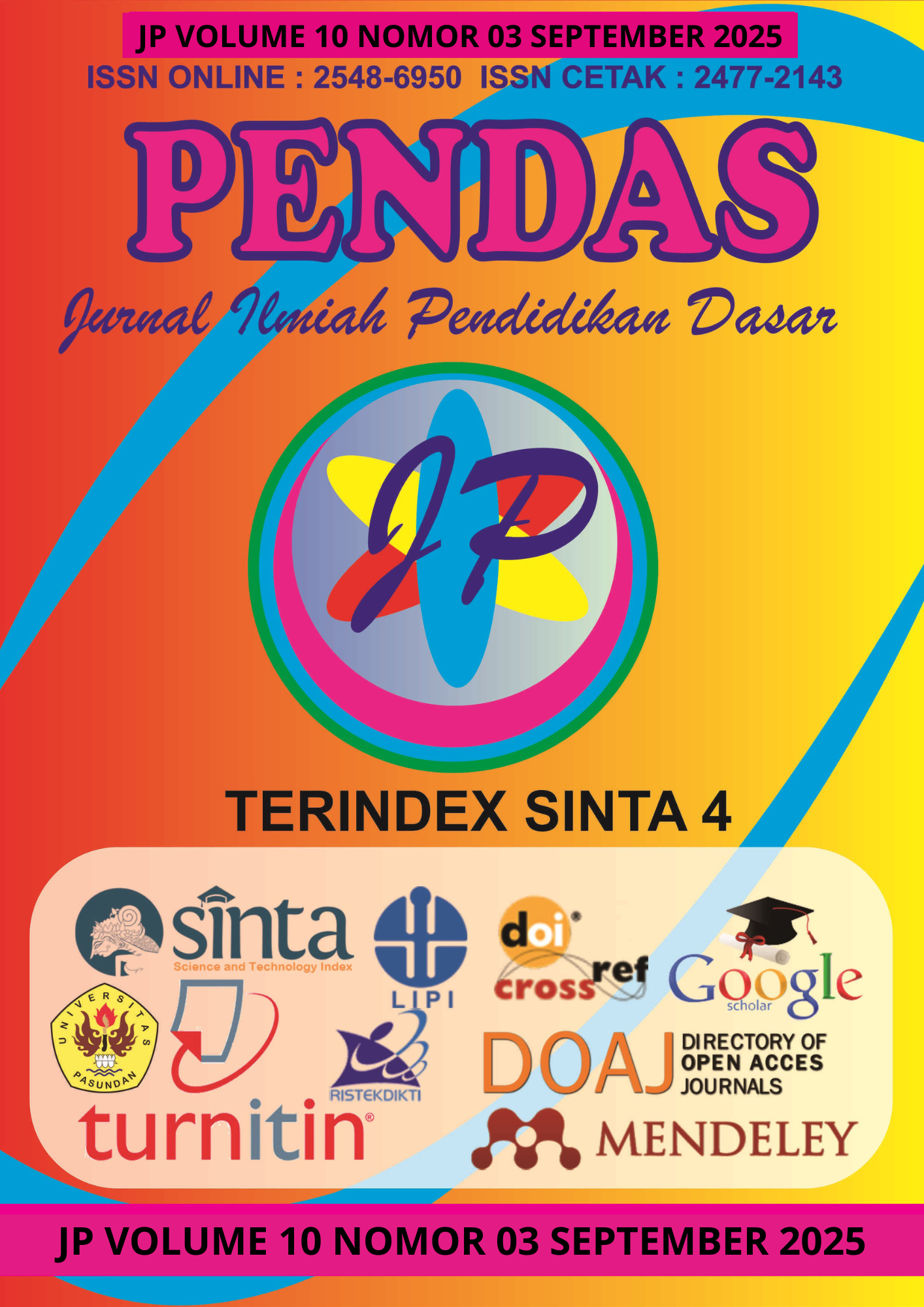MENINGKATKAN KETERAMPILAN SOSIAL SISWA KELAS V MELALUI MODEL PEMBELAJARAN KOOPERATIF TIPE ROUND ROBIN DALAM PEMBELAJARAN IPS
DOI:
https://doi.org/10.23969/jp.v10i03.30176Keywords:
social skills, cooperative learning model, Round RobinAbstract
This study aims to improve students’ social skills in Social Studies learning through the implementation of the Round Robin cooperative learning model. The background of this research is the low level of students’ social skills, such as lack of cooperation, empathy, assertiveness, and self-control during group discussions. This research is a Classroom Action Research (CAR) conducted in two cycles involving fifth-grade students of SDN Kebon Jeruk 04, West Jakarta. Data were collected through observation, questionnaires, field notes, and documentation, and analyzed using both quantitative and qualitative approaches. The results showed that the Round Robin model was effective in improving students’ social skills. The number of students who scored ≥70 increased from 55.56% in Cycle I to 85.19% in Cycle II. Furthermore, students became more active in expressing opinions, cooperating, and demonstrating mutual respect without dominating the discussion. Based on these findings, the Round Robin model is proven to be suitable for use in Social Studies learning as a means of developing elementary school students’ social skills.
Downloads
References
Bandura, A. (1986). Social foundations of thought and action: A social cognitive theory. Englewood Cliffs, NJ: Prentice-Hall.
Erikson, E. H. (1968). Identity: Youth and crisis. New York, NY: W. W. Norton & Company.
Miles, M. B., & Huberman, A. M. (1994). Qualitative data analysis: An expanded sourcebook (2nd ed.). Thousand Oaks, CA: Sage Publications.
Vygotsky, L. S. (1978). Mind in society: The development of higher psychological processes. Cambridge, MA: Harvard University Press.
Asari, M., & Arifani. (2017). The use of cooperative Round Robin discussion model to improve students’ holistic ability in TEFL class. International Education Studies, 10(2), 123–130.
Elliott, S. N., & Gresham, F. M. (1993). Social skills intervention for children. Behavior Modification, 17(3), 287–313.
Herlisya, D., & Wiratno, P. (2022). Round Robin as an interactive technique to teach speaking. Journal on Education, 5(4), 311–318.
Kagan, S. (2009). Kagan cooperative learning. San Clemente, CA: Kagan Publishing.
Maryani, E., & Syamsudin. (2009). Pengembangan program pembelajaran IPS untuk meningkatkan kompetensi keterampilan sosial. Jurnal Penelitian, 9(1), 45–53.
Rahmad. (2016). Kedudukan Ilmu Pengetahuan Sosial pada Sekolah Dasar. Muallimuna: Jurnal Madrasah Ibtidaiyah, 2(1).
Downloads
Published
Issue
Section
License
Copyright (c) 2025 Pendas : Jurnal Ilmiah Pendidikan Dasar

This work is licensed under a Creative Commons Attribution 4.0 International License.



















